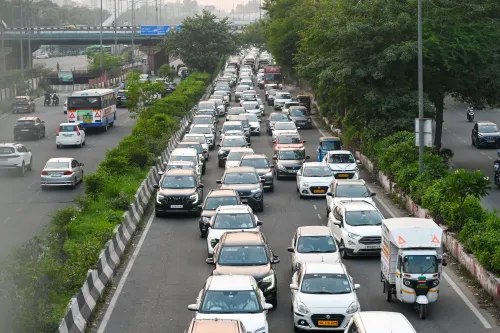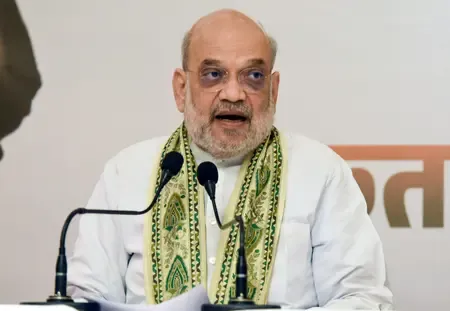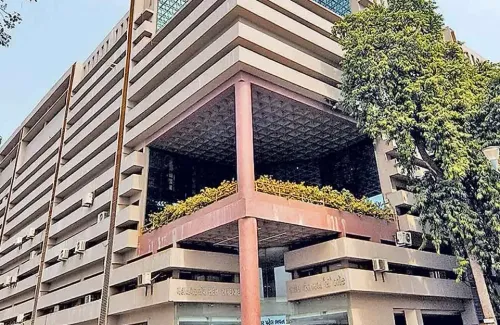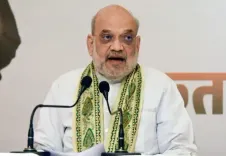Manipur Honors the Legacy of Women Freedom Fighters on Nupi Lal Day
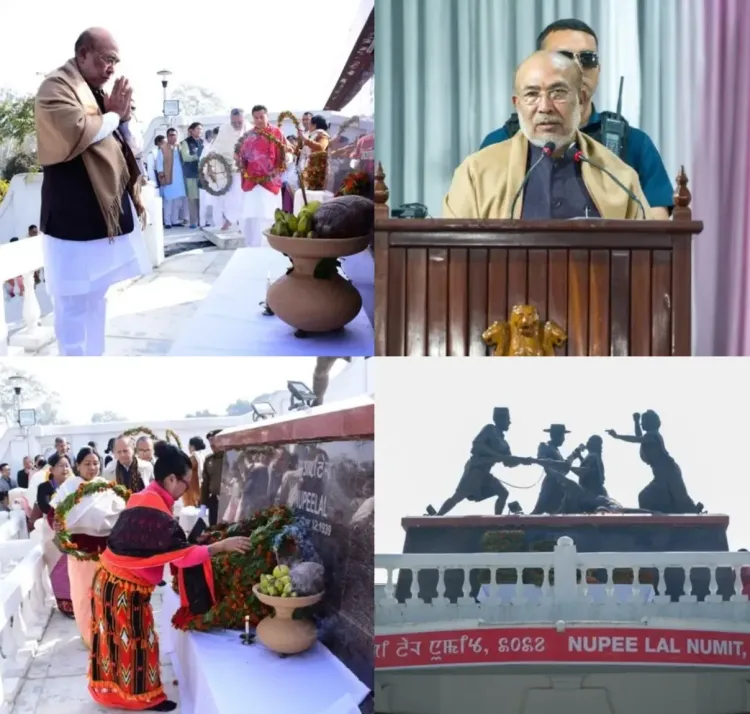
Imphal, Dec 12 (NationPress) The residents of Manipur on Thursday paid sincere tributes to the women freedom fighters who participated in the Nupi Lal (women’s war) against British actions in 1904 and 1939.
This significant day was marked as the 85th Nupi Lal Numit.
The Nupi Lal or Nupee Lal represents a historic struggle that ignited on December 12, 1939, in response to an extremely exploitative socio-economic and political system enforced by the combined feudalistic-colonial rule in Manipur.
Chief Minister N. Biren Singh led the community in laying floral tributes at the Nupee Lal Memorial complex in honor of the departed women freedom fighters.
A formal gathering was also organized at the Ghanapriya Women’s College, where the Chief Minister emphasized that Nupee Lal Numit is celebrated annually to acknowledge the valiant efforts of Manipuri women in 1904 and 1939, who stood against the injustices of British imperialism.
He added that beyond the contributions made during these uprisings, it is essential to recognize the bravery of Manipuri women in various instances, including their role in expelling the Burmese (Awa) during the Seven Year Devastation (1819-1826).
Singh further observed that the spirit of bravery and courage is still evident among contemporary women in the state, as they actively lead in matters concerning the safety of the populace.
He highlighted the vital contributions of Manipuri women across several sectors, including social, economic, art, culture, hospitality, and sports, in addition to their domestic roles.
The cultural performances by Manipuri women at various national and international platforms have showcased the distinctiveness of the state’s culture globally, the Chief Minister stated.
At the gathering, Singh acknowledged the hard work and dedication of women, noting that the state government has implemented various welfare schemes such as the Ima Nongthangleima Yaipha Tengbang Scheme, which provides financial support of Rs 500 monthly to unemployed women over 40.
He mentioned that Ima markets (women-only markets) have been established in all districts, recognizing the critical role of women in economic activities, and that financial aid has been extended to women athletes for establishing training facilities and coaching young talents in their respective fields.
The Chief Minister also spoke about the Central Government’s initiatives under Prime Minister Narendra Modi, particularly the passage of the Women’s Reservation Bill 2023 in Parliament.
Minister for Forest, Environment, and Climate Change, Biswajit Singh, remarked that Nupee Lal is commemorated annually to honor the valor and sacrifices of women freedom fighters, asserting that this observance should fill every Manipuri with pride.
Referencing the two incidents of Nupee Lal in 1904 and 1939, along with the courage of Manipuri women in combating British injustices, he stressed the importance of embodying their spirit of courage and patriotic love.
He noted that Nupee Lal catalyzed significant political, social, and economic reforms in the state, emphasizing the need for collective remembrance.
Discussing the impact of women in various fields, he stated that gender equality is crucial for fostering development in Manipur.
He further underscored the necessity for women’s involvement in decision-making for inclusive advancement.
On December 12, 1939, a vast group of women surged towards the state Durbar Office demanding an immediate halt to rice exports, during which around 21 women sustained serious injuries from soldiers' bayonets and weapons.
The initial women’s agitation was sparked by Colonel Maxwell's attempt in July 1904 to reinstate the abolished Lallup System, which required men to perform unpaid labor for 10 days after every 30 days.
Following the arson of two British officials' bungalows in 1904, Maxwell temporarily revived the Lallup System to facilitate their reconstruction.
This decision proved to be a grave error as women united in protest against the injustices of enforced labor.
After the Anglo-Manipur War of 1891, Manipur was placed under direct British governance until 1907, when the administration was returned to Raja Churachand Singh and his durbar.
However, a British political agent was appointed to supervise the region's operations, wielding authority over the royal durbar, which had significant repercussions on Manipur’s economy and trade.

